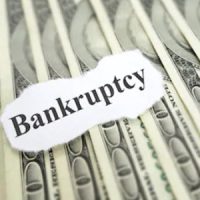Are Chapter 7 Bankruptcies Ever Denied?

No, unless the debtor fails to meet one of the two basic qualifications for bankruptcy. All debtors must be honest and unfortunate. Honest debtors aren’t trying to manipulate the system for their own purposes, and unfortunate debtors are, well, unfortunate. More on these things below.
Honest and unfortunate debtors receive all the benefits of Chapter 7 bankruptcy. These benefits include the Automatic Stay, asset protection, and debt discharge. The Automatic Stay halts repossessions, foreclosures, lawsuits, and most other creditor adverse actions. The Bankruptcy Code also protects most assets during a Chapter 7 and discharges (forgives) credit card bills and most other unsecured debts.
Serial Filing
The Supreme Court has consistently held that honest yet unfortunate debtors are entitled to fresh starts. The Supreme Court has also consistently held that bankruptcy is a shield, not a sword.
Repeated bankruptcy filings is the best example of the shield/sword effect. Some unscrupulous debtors and Chicago bankruptcy lawyers file bankruptcy repeatedly to frustrate creditors. The rules vary in different courts, but generally, multiple filings affect the Automatic Stay.
- One Prior Filing: If the debtor has filed bankruptcy more than once in the past six months or so, a Chicago bankruptcy lawyer must normally show cause for the subsequent filing. “Cause” is usually any excuse better than “my cat was sick.”
- Two Prior Filings: In these cases, there’s basically a presumption that the debtor is up to no good. To overcome that presumption, the debtor must show good cause. Judges usually require hearings in these cases.
- Three Prior Filings: These debtors are definitely using bankruptcy as a sword rather than a shield, at least according to the law. So, the Automatic Stay either doesn’t go into effect or only remains active for about ninety days.
The serial filing rule also applies to name change bankruptcies (e.g. Paul files bankruptcy, then Ms. Paul files bankruptcy, then Paul LLC files bankruptcy).
Formal Qualifications
The first formal Chapter 7 qualification, completing classes, is a very low hurdle. All debtors must complete a pre-filing debt counseling class and a post-filing budgeting class.
The second formal Chapter 7 qualification hurdle is only a little harder to clear. The debtor’s actual income must be at or below the average income for that household size.
An easy and hard method is available. The easy method uses the debtor’s Schedule I income. If the debtor’s monthly income is under a certain level, the debtor is automatically in the clear. Alternatively, a Chicago bankruptcy lawyer could use the expenses on Schedule J to meet this requirement.
Additionally, all debtors must provide picture identification and proof of Social Security number. On a related note, they must promptly comply with all trustee demands for documents and other such things.
Informal Qualifications
Once again, these qualifications vary in different jurisdictions. The “destitution rule” is the most common one.
If the debtor’s monthly income exceeds expenses, many trustees (people who manage bankruptcies for judges) question the need for Chapter 7. They also ask these questions if the debtor reaffirms (voluntarily agrees to repay) most debts.
Work With a Savvy Cook County Lawyer
No matter what kind of financial problem you are having, bankruptcy could be a way out. For a free consultation with an experienced bankruptcy attorney in Chicago, contact the Bentz Holguin Law Firm, LLC. We routinely handle matters throughout the Prairie State.
Source:
law.cornell.edu/supct/html/05-996.ZO.html


